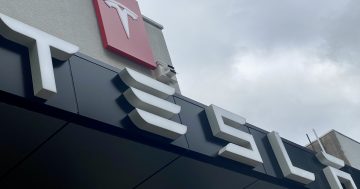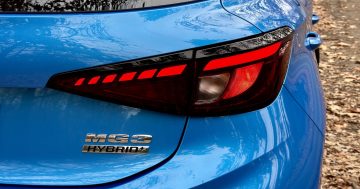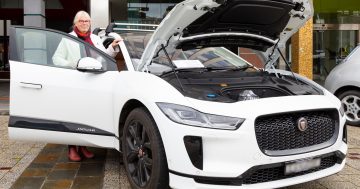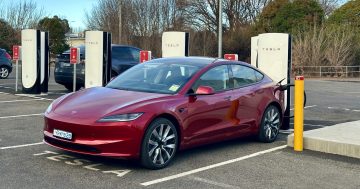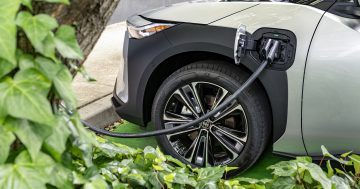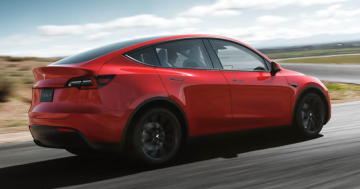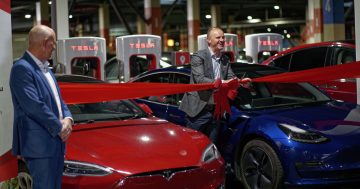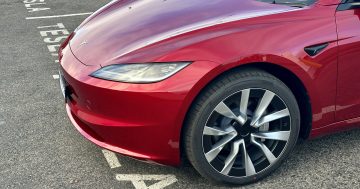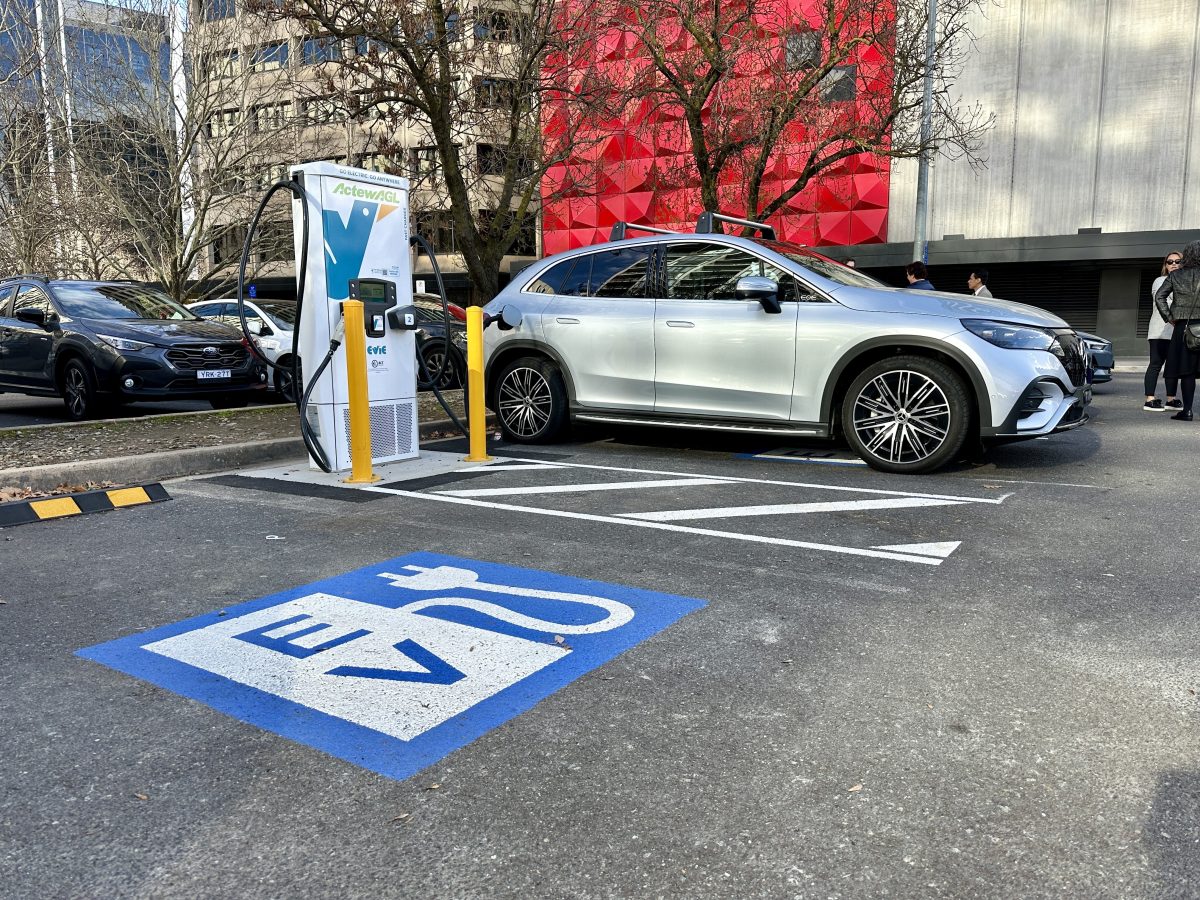
New fast chargers in Hobart Place, Civic. Photo: James Coleman.
Another car maker has joined a growing list scaling back plans to go fully electric, but the ACT Government says this changes nothing on its plan to ban the sale of new petrol and diesel vehicles come 2035.
Volvo Cars previously had plans to only offer EVs across its range by 2035, but last week the company announced “adjusted electrification ambitions”.
It now aims for EVs to make up 90 to 100 per cent of its global sales by 2035, with the remaining 10 per cent to be made up of hybrids.
“We are resolute in our belief that our future is electric,” CEO Jim Rowan said.
“However, it is clear that the transition to electrification will not be linear, and customers and markets are moving at different speeds.”
It follows in the footsteps of other brands like Mercedes-Benz, which has ditched its 2030 EV-only goal for a more flexible strategy “where market conditions and customers will set the pace of transformation”.
General Motors, Ford and Volkswagen have nearly all said the same in recent months.
Closer to home, the latest sales data from the Federal Chamber of Automotive Industries (FCAI) for August revealed EV sales are still on the rise but have slowed.
EVs are up 11.6 per cent so far this year but down 15.6 per cent last month compared to August 2023.
The decline was primarily driven by Tesla, former EV king, but down 27.7 per cent last month and down 14.4 per cent year-to-date – that’s despite slashing the price of its Model Y by $10,000 in the first half of this year.
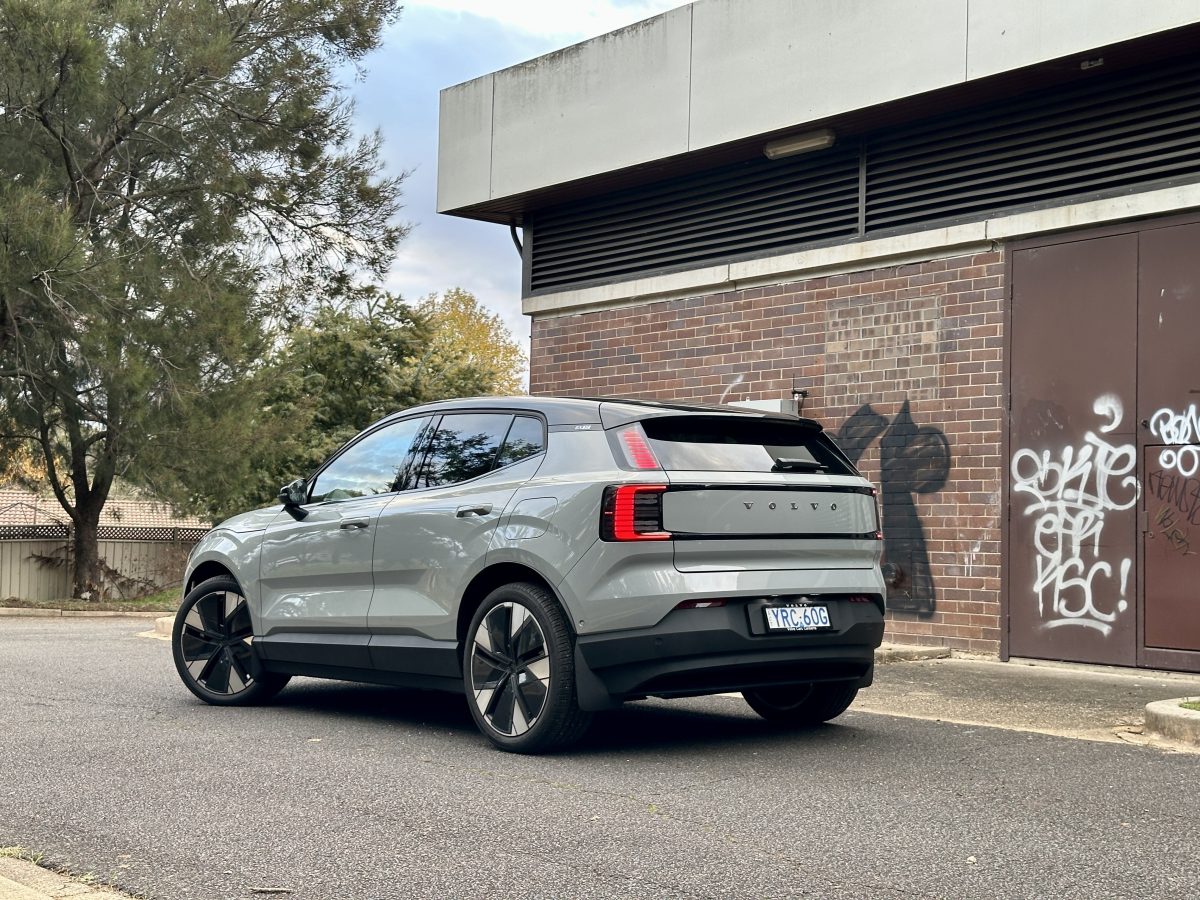
Volvo Cars has “adjusted” its EV sales targets to 90 per cent global volume by 2030. Photo: James Coleman.
Meanwhile, the ACT is set to hit 10,000 new EV registrations by November, according to the ACT branch of the Australian Electric Vehicle Association (AEVA ACT).
AEVA ACT hosted an EV show-and-shine display at CIT’s EV workshop in Fyshwick last Sunday (8 September) to mark ‘World EV Day’.
Advocacy lead Paul Wayper says more than 100 vehicles turned up, representing a cross-section of brands like Tesla, BYD, Hyundai, Kia, MG, MINI, and even DeLorean, in the form of a 1980s DMC-12 converted to run on battery power.
He adds that it also attracted plenty of those interested in making the switch to an EV.
“This is part of what it’s all about – giving people the chance to see the wide variety of cars available now.”
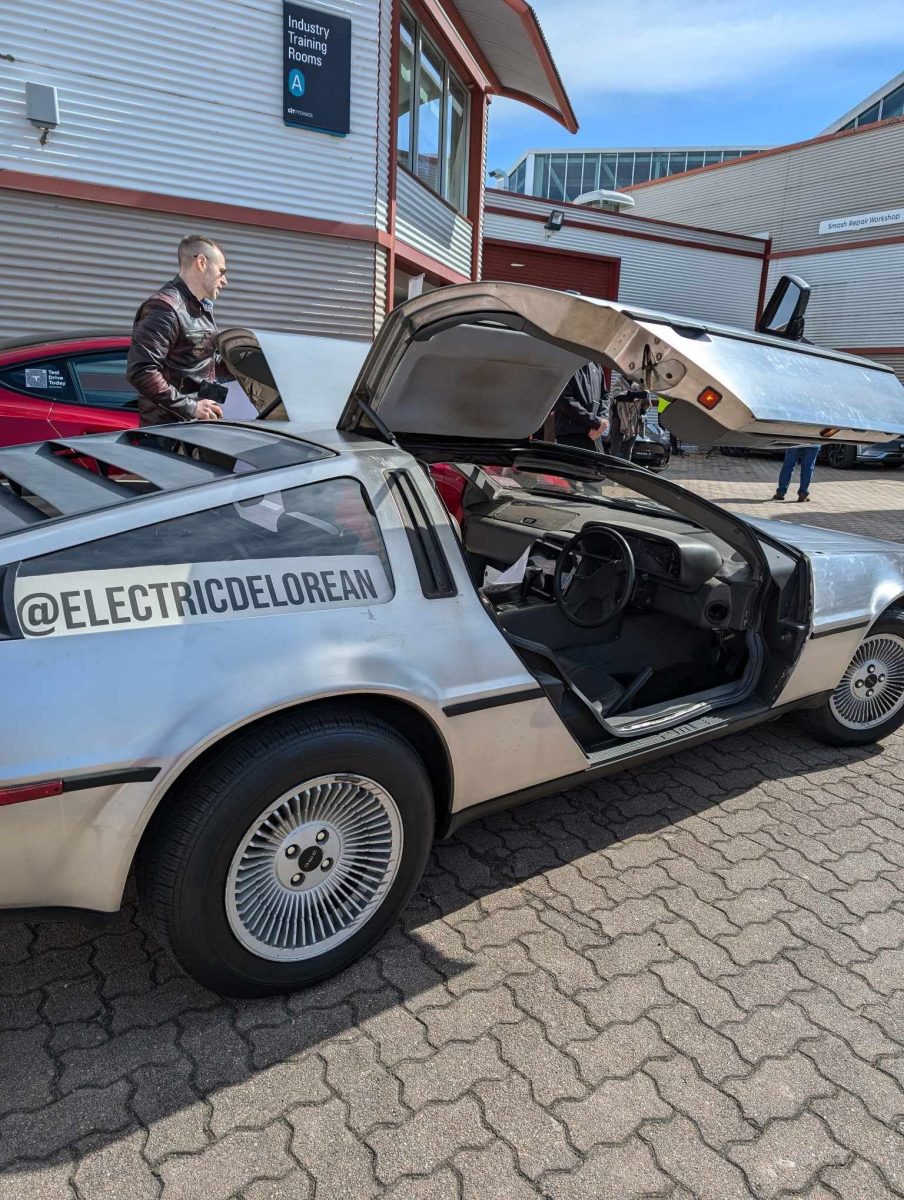
Where we’re going we don’t need to … petrol. Photo: Tesla Owners Club of Australia, Facebook.
EV registrations in the ACT have grown from 446 in January 2020 to over 9100 today, and Paul doesn’t see it going anywhere but up.
“The graph that we see is pretty much a straight line upward,” he says.
“Just because it’s not exponential growth, doesn’t mean it’s not growth. Sales are continuing, and yes, there was a bit of a downturn in August, but that’s exactly the downturn you get around this time of year as everyone does their budgets again.”
That said, the consensus among members of AEVA ACT is that “EVs aren’t the answer” and only work hand in hand with improvements to public transport, shared path networks and city designs.
“We need to think about those who can’t afford an EV or can’t afford to put solar panels on their roof,” Paul says.
“Definitely, there is no one magic bullet here. It’s going to be a long process to find the right solution for each person.”
The Australian Automotive Dealer Association (AADA), the peak advocacy body for the nation’s car dealerships, expects pure petrol and diesel vehicles to “make up a lower proportion of sales”, while a combination of hybrid, plug-in hybrid and EVs “make up a greater percentage” over the next five to 10 years.
“How fast this occurs depends on a number of factors, some of which can be controlled by government such as the availability of EV purchase incentives for consumers and the development of reliable public charging network,” CEO James Voortman says.
Mr Voortman agrees the country needs a “national approach” to lowering emissions, but this should be in the hands of the Commonwealth government.
“Banning the sale of petrol and diesel vehicles at the territory level is simply unworkable,” he says.
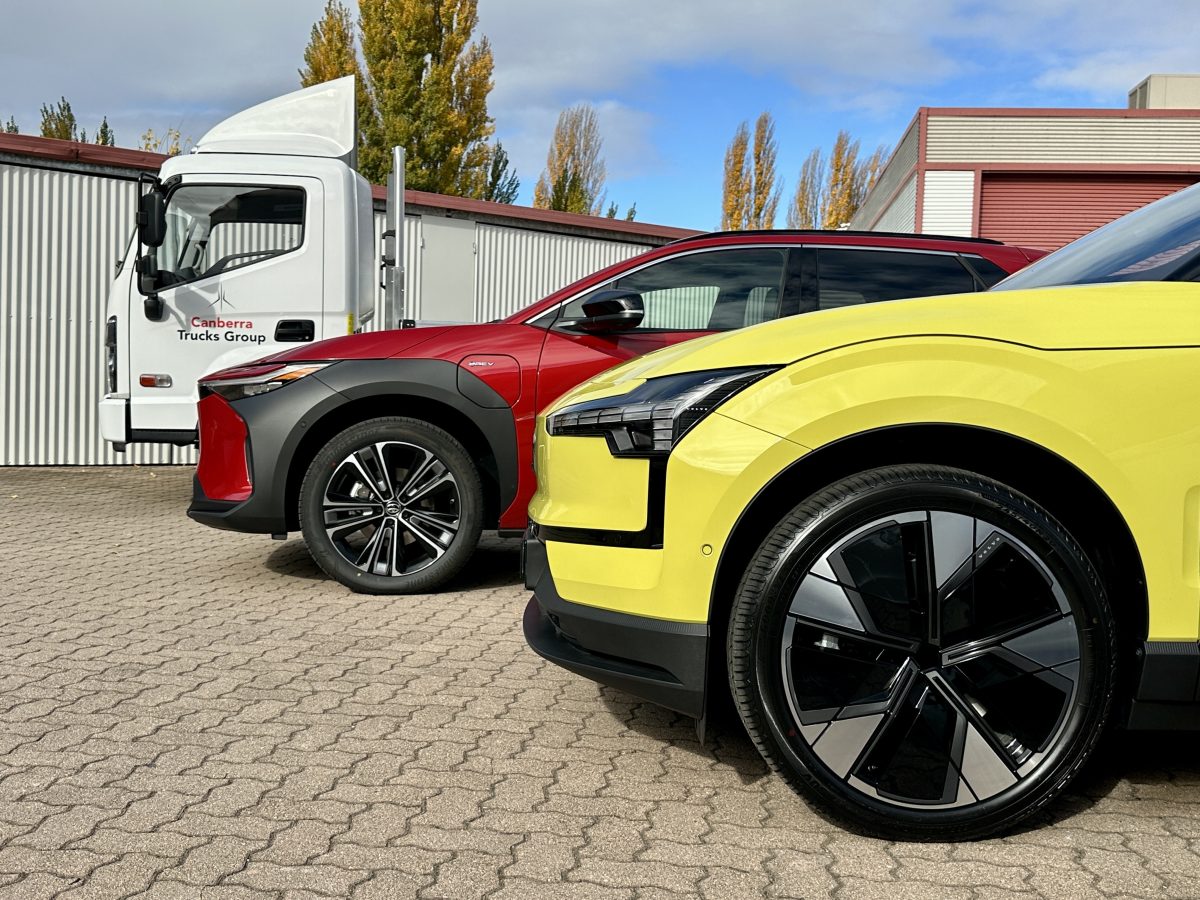
EVs arranged outside the EV workshop at CIT Fyshwick. Photo: James Coleman.
He also argues the door should be left open for other technologies.
“Car manufacturers have teams of very skilled engineers working on solutions such as better EV batteries, hydrogen technology and low-carbon fuels.
“The future will see the deployment of multiple technologies suited to different vehicle types all working together to significantly lower vehicle emissions.”
In a statement to Region, the ACT Government described Volvo’s adjusted targets as a “minor change” and one that “will not impact the ACT’s ability to meet its 2030 and 2035 light zero-emissions vehicles (ZEVs) sales targets”.
“The European Union has a target of 100 per cent of cars sold from 2035 as being ZEVs and Volvo Cars intend on meeting that requirement.”












